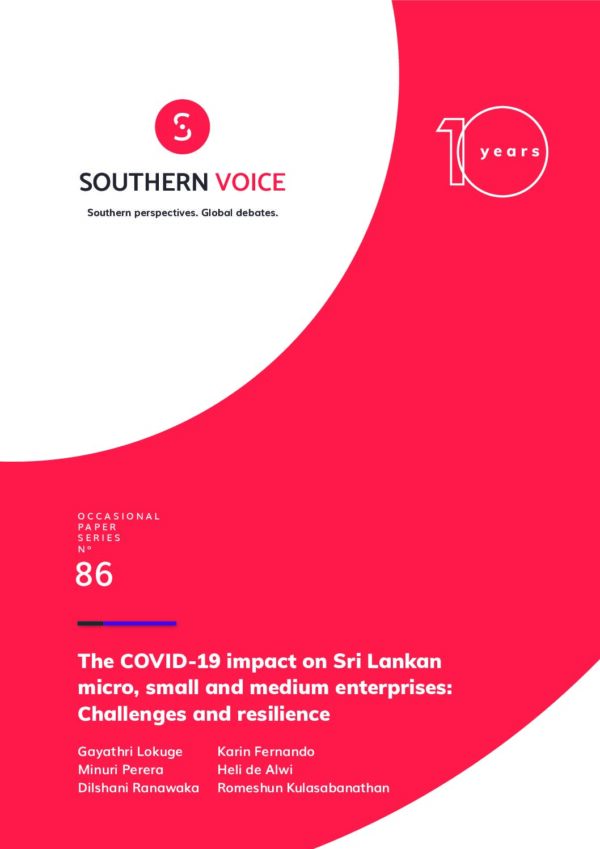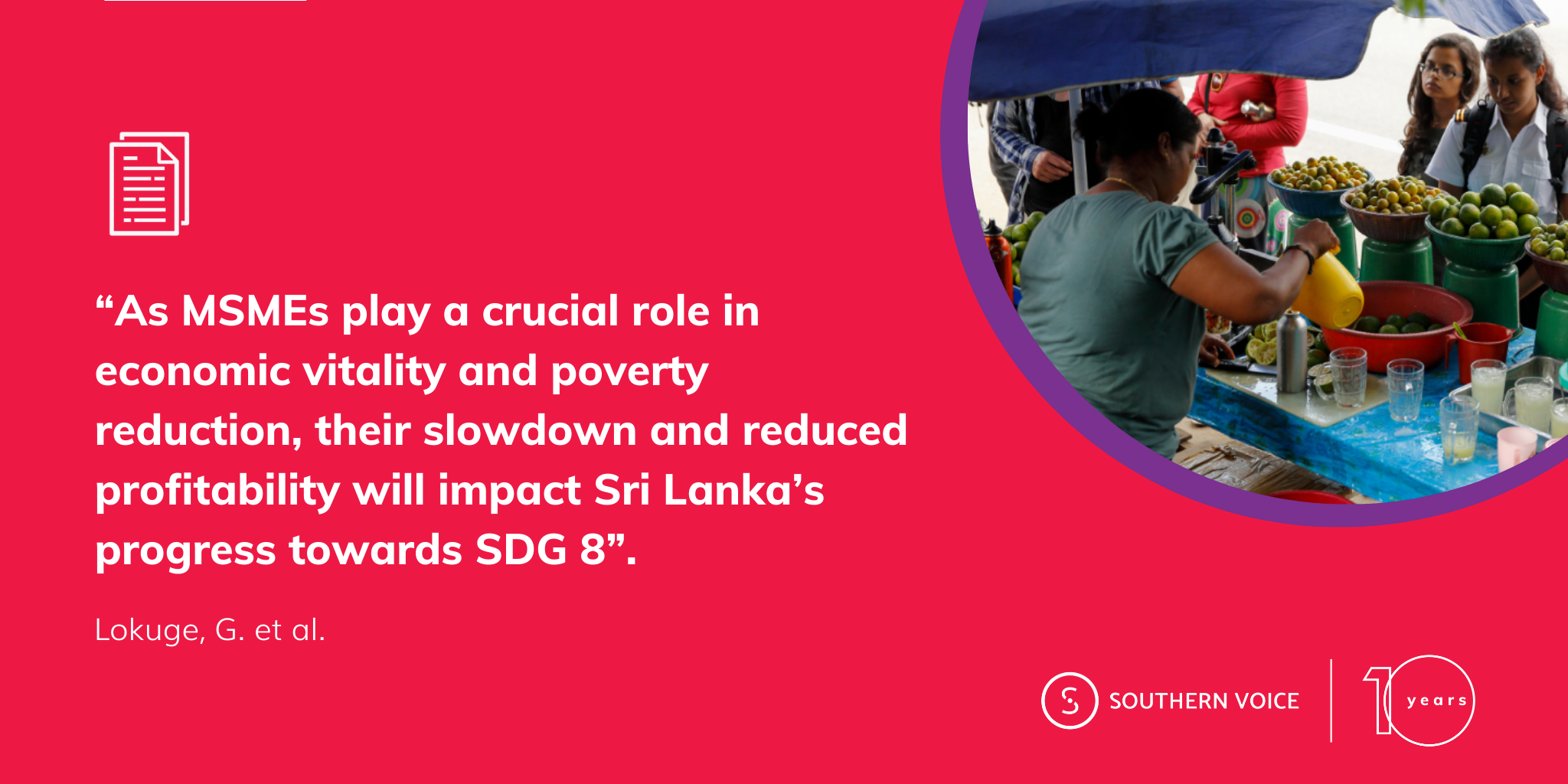The Sri Lankan MSME sector is the backbone of the country's economy. It experienced a roller-coaster ride as owners struggled…

This study assesses the impact of COVID-19 on Sri Lankan micro- and small-scale enterprises (MSEs) and their workers, using secondary quantitative data and primary quantitative and qualitative data from business owners and workers.
The study finds that demand and supply side disruptions, caused by mobility restrictions and limited access to finance, negatively affected MSEs, with women-owned enterprises facing greater difficulties. To continue operations, businesses reduced their scale of operations, provided worker accommodation, and marketed products using digital media. MSEs stated that working capital loans facilitated by the government were useful to pay wages and maintain a steady cash flow. However, fewer women business owners were able to access these loans. Business recovery is slow due to higher raw materials, fuel, and labour prices and frequent power outages in Sri Lanka. Women-owned enterprises have been slower to recover. Weathering the crisis and the emergence of new marketing strategies during the pandemic period are causes for optimism. Assistance to MSEs during a crisis should be tailored to their specific needs, with special consideration given to addressing gender inequalities to achieve sustainable development in the sector while ensuring decent working conditions for workers.


